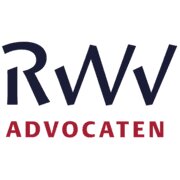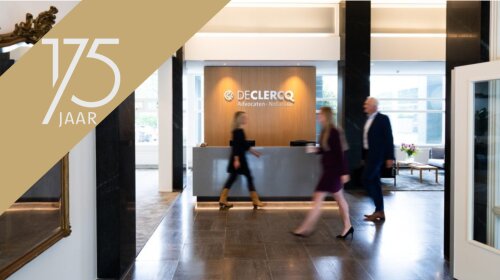Best Mortgage Lawyers in Leiden
Share your needs with us, get contacted by law firms.
Free. Takes 2 min.
Free Guide to Hiring a Real Estate Lawyer
List of the best lawyers in Leiden, Netherlands
About Mortgage Law in Leiden, Netherlands
Mortgage law in Leiden, Netherlands is primarily governed by Dutch national legislation, including the Dutch Civil Code and mortgage regulations enforced at both national and municipal levels. A mortgage, locally known as "hypotheek," is a legal agreement used to secure loans against property, most commonly residential homes. Leiden, with its historical charm and vibrant real estate market, attracts both locals and expatriates aspiring to own property. Whether you are purchasing your first home, refinancing an existing mortgage, or investing in rental properties, understanding the legal framework surrounding mortgages in Leiden is crucial. The process typically involves banks or lending institutions, notaries, and compliance with local property registration procedures.
Why You May Need a Lawyer
Obtaining or managing a mortgage in Leiden can be complex, given the intricacies of Dutch property law and the significant financial commitment it entails. Here are common situations where legal assistance is advised:
- Reviewing and negotiating mortgage terms before signing an agreement with a lender.
- Resolving disputes with lenders over missed payments or foreclosure threats.
- Transferring property ownership due to inheritance, divorce, or sale.
- Refinancing current mortgages and understanding new legal obligations.
- Clarifying the implications of foreign income or residency status on mortgage eligibility.
- Ensuring compliance with both national and municipal property laws during transactions.
Local Laws Overview
The mortgage process in Leiden is shaped by several Dutch legal principles and local administrative requirements. Key aspects include:
- The Dutch Civil Code stipulates that all mortgages must be officially recorded by a notary in the Land Registry (Kadaster).
- Lenders require borrowers to meet strict financial eligibility and property valuation standards before granting a mortgage.
- Dutch law limits the maximum loan-to-value ratio for mortgages, affecting how much you can borrow relative to the property's value.
- Interest rates and types (fixed or variable) are subject to contractual agreement but regulated for transparency.
- Foreign nationals can apply for mortgages, though conditions may differ based on residency status and income origin.
- In Leiden, local zoning and municipal regulations can affect property usage and mortgage approval, particularly for historic homes or renovations.
- Early mortgage repayment may incur penalties, depending on your specific mortgage contract and lender's policies.
Frequently Asked Questions
What is a mortgage in the Netherlands?
A mortgage is a loan provided by a bank or lender that uses your property as collateral. If you fail to repay, the lender can claim the property to recover the owed amount.
Can foreign nationals obtain a mortgage in Leiden?
Yes, non-Dutch citizens can apply for mortgages in Leiden. However, banks may require additional documentation and may impose stricter lending conditions, particularly regarding residency status and income stability.
What documents are needed to apply for a mortgage?
Typically, you will need proof of identity, proof of income, details of your assets and debts, a purchase agreement for the property, and sometimes proof of residency or a residence permit.
Do I need to engage a notary for a mortgage transaction?
Yes, Dutch law requires all property and mortgage transactions to be formalized by a civil law notary, who registers the mortgage in the Kadaster (Land Registry).
How is the maximum mortgage amount determined?
The amount is typically determined by your income, existing debts, the property's value, and the national loan-to-value regulations. Most borrowers can finance up to 100 percent of the property value, but this can change based on policy.
What is the difference between a fixed and a variable mortgage interest rate?
A fixed rate remains the same for a set period, providing predictability in payments. A variable rate may change periodically, potentially lowering or increasing your monthly payment over time.
What are typical mortgage terms in Leiden?
Most mortgages in the Netherlands are long-term, commonly lasting 20 to 30 years, though shorter terms are available. Terms regarding repayment schedules and early repayment penalties will depend on your lender and contract.
Can I transfer my mortgage if I move?
Some Dutch lenders allow mortgage portability, but conditions vary. Consult your lender and a legal advisor to understand your options and obligations when moving.
What happens if I default on my mortgage payments?
If you miss payments, your lender can eventually initiate foreclosure proceedings. Dutch law provides some protection, but it is essential to seek legal advice immediately if you face difficulties.
Is mortgage interest tax-deductible in the Netherlands?
Yes, for primary residences, mortgage interest is generally tax-deductible under certain conditions. Tax rules can change, so consult a tax or legal specialist for current specifics.
Additional Resources
Several resources can assist with mortgage-related legal questions in Leiden:
- Land Registry (Kadaster) - for official property registration and information
- Netherlands Consumers Association (Consumentenbond) - provides independent advice on mortgages and lenders
- The Dutch Bar Association (Nederlandse Orde van Advocaten) - for finding qualified lawyers specialized in property and mortgage law
- The Homeowners Association (Vereniging Eigen Huis) - offers advice and support on home purchase and mortgage issues
- Town Hall (Gemeente Leiden) - for local zoning, building permits, and municipal regulations affecting mortgages
Next Steps
If you are considering securing or modifying a mortgage in Leiden, start by gathering all necessary financial and property documentation. Review your mortgage options and consult with independent advisors, such as a mortgage broker or financial planner. Always engage a qualified lawyer or notary before signing any legally binding documents to ensure your interests are protected and that you are fully informed of your legal obligations. Should complications arise, such as disputes with a lender, missed payments, or complex property issues, seek specialized legal advice in property and mortgage law. This approach will help you make informed, confident decisions regarding your property investment in Leiden.
Lawzana helps you find the best lawyers and law firms in Leiden through a curated and pre-screened list of qualified legal professionals. Our platform offers rankings and detailed profiles of attorneys and law firms, allowing you to compare based on practice areas, including Mortgage, experience, and client feedback.
Each profile includes a description of the firm's areas of practice, client reviews, team members and partners, year of establishment, spoken languages, office locations, contact information, social media presence, and any published articles or resources. Most firms on our platform speak English and are experienced in both local and international legal matters.
Get a quote from top-rated law firms in Leiden, Netherlands — quickly, securely, and without unnecessary hassle.
Disclaimer:
The information provided on this page is for general informational purposes only and does not constitute legal advice. While we strive to ensure the accuracy and relevance of the content, legal information may change over time, and interpretations of the law can vary. You should always consult with a qualified legal professional for advice specific to your situation.
We disclaim all liability for actions taken or not taken based on the content of this page. If you believe any information is incorrect or outdated, please contact us, and we will review and update it where appropriate.












